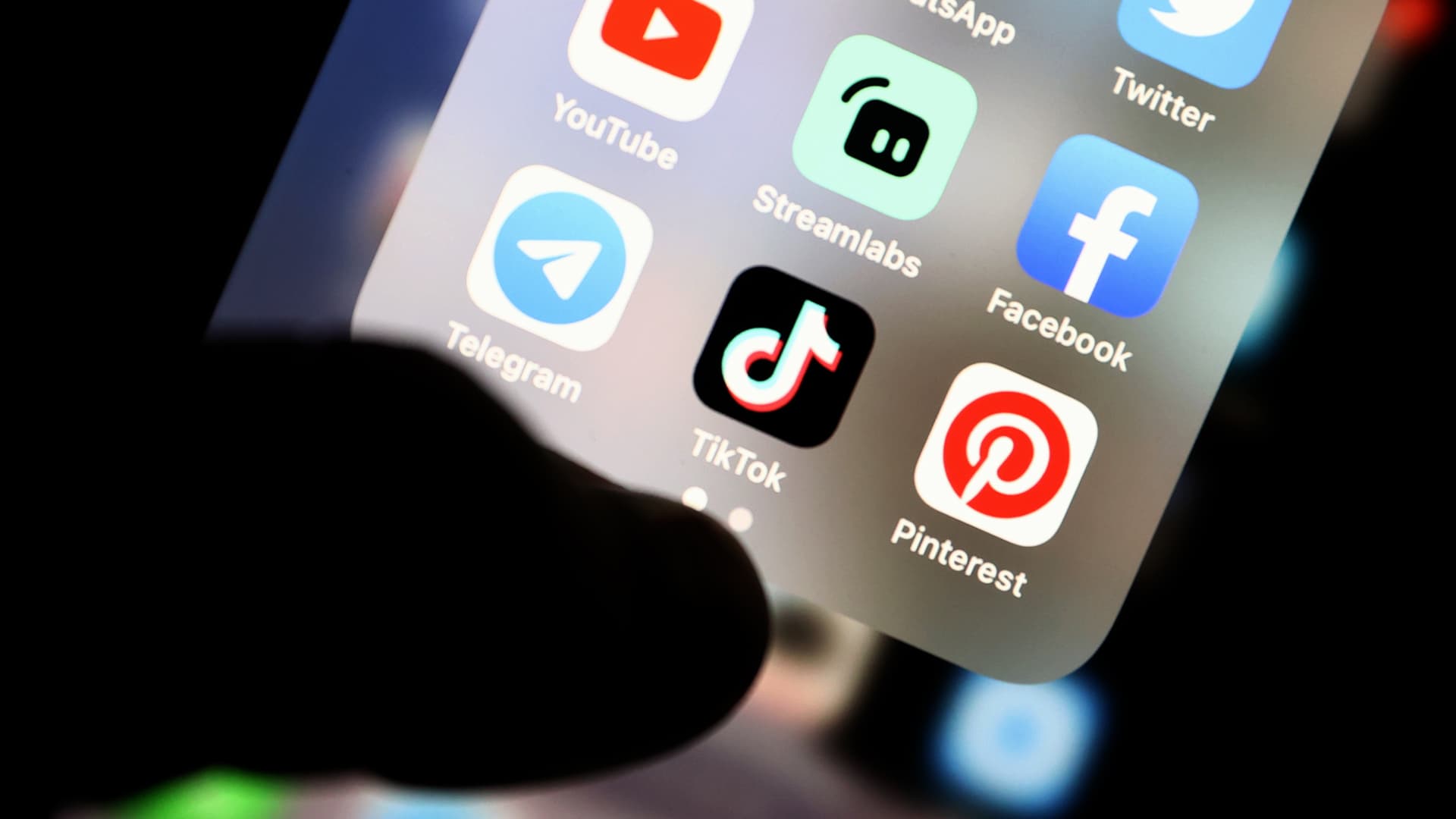A display for image sharing and social media service Pinterest is seen at the Collision conference in Toronto, Ontario, Canada June 23, 2022.
Chris Helgren | Reuters
Pinterest shares dropped in extended trading on Thursday after the company issued a weaker-than-expected forecast and reported disappointing revenue. The stock pared some of its losses after Pinterest revealed a new Google partnership.
- Revenue: $981 million vs. $991 million expected, according to LSEG, formerly known as Refinitiv.
- Earnings: 53 cents per share, adjusted, vs. 51 cents per share expected, according to LSEG.
Revenue rose 12% from $877.2 million a year earlier, while net income was $201 million, or 29 cents a share, up from $17.49 million, or 3 cents a share, the previous year.
Monthly active users in the fourth quarter rose 11% to 498 million, topping analyst estimates of 487 million. The company said its global average revenue per user was $2, lower than analyst estimates of $2.05.
Pinterest said first-quarter revenue will be between $690 million and $705 million, which equates to year-over-year growth of 15% to 17%. The middle of that range, $697.5 million, is below the average analyst estimate of $703 million.
The stock initially sank as much as 28% to an after-hours low of $29.40. After Pinterest CEO Bill Ready announced a “third-party app integration with Google” during a call with analysts, the company’s shares rebounded to $37.82, equating to a nearly 10% decline.
The Google integration is similar to Pinterest’s partnership with Amazon focusing on third-party ads, Ready said. Pinterest has been pitching its Amazon partnership as key to lifting the company’s overall sales and making it easier for users to buy goods that they see on the app.
Ready, who was president of Google’s commerce and payments business before joining Pinterest in 2022, said the company is “quite excited” about the potential of the new partnership to help it better “monetize markets” outside of the U.S.
“We see Pinterest as significantly under monetized across the board, but the most under monetized internationally,” Ready said, adding that 80% of its users but only 20% of its sales are outside the U.S.
Ready said the Google integration “went live a couple of weeks ago” and that it’s helped lift “third-party ad demand.” He said it “was not a significant revenue contributor” for Pinterest’s fourth quarter, but could help in the first-quarter and “going forward.”
Uneven market
The company’s report comes as the broader digital advertising market is showing recovery, with Meta, Alphabet and Amazon all picking up steam and growing their respective ad units by double digits in the fourth quarter. The data suggests that businesses are boosting spending on online promotions after cutting back in 2022 and part of 2023 over concerns about the Ukraine-Russian war and high interest rates.
But not all online ad companies are seeing the benefits. Snap shares cratered 35% on Wednesday after the company reported fourth-quarter sales growth of 5%, trailing expectations, and the company also issued weak guidance.
Ready said the digital ad market is improving from last year, and that retail was the company’s “fastest growing segment.”
“We’re seeing across the entire ad industry [that] performance matters more than ever, and we’re winning on that front,” Ready said. “We’re driving more performance to advertisers than ever before.”
Although Pinterest noted last quarter that the Middle East crisis caused some advertisers to halt their spending, company executives told analysts that the Israel-Hamas war ultimately had a temporary impact.
Prior to Thursday’s report, Pinterest shares were up 9.5% this year after surging 53% in 2023.
Costs dropped about 10% from a year ago to $785 million, largely due to a decline in sales and marketing expenses. A year ago Pinterest slashed about 5% of its workforce, part of an industrywide downsizing.


